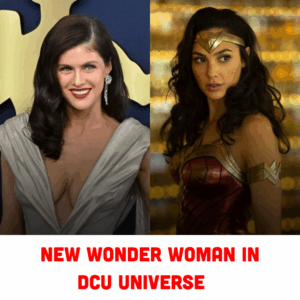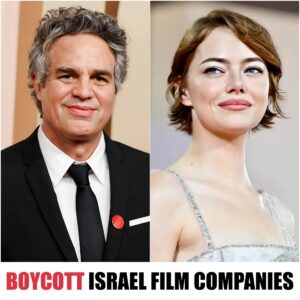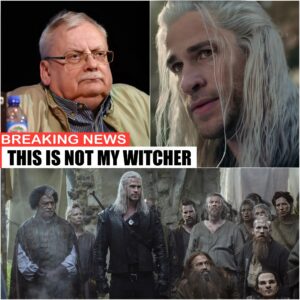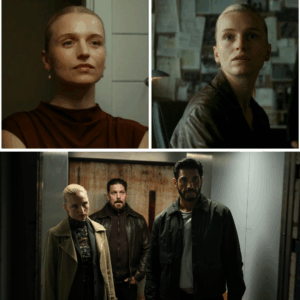In the high-stakes arena of Hollywood, where careers can soar or stall on the whisper of controversy, the intersection of entertainment and geopolitics has once again ignited fierce debate. Recent headlines swirled around rising stars David Corenswet and Milly Alcock, with claims that both had endorsed a pledge refusing collaboration with Israeli film institutions. While Alcock’s signature on the Film Workers for Palestine (FWP) commitment stands as a deliberate act of solidarity, Corenswet’s purported involvement quickly unraveled as a fabrication, highlighting the perils of misinformation in an era of polarized activism. As the pledge gains traction amid the ongoing Israel-Palestine tensions, it underscores a growing divide in Tinseltown: artists leveraging their platforms for advocacy, even as rumors threaten to tarnish reputations and fuel backlash. This episode, unfolding against the backdrop of stalled projects and studio hesitations, signals Hollywood’s deepening entanglement in global conflicts, where personal convictions clash with professional imperatives.
Milly Alcock, the Australian actress poised to embody Supergirl in the rebooted DC Universe, confirmed her alignment with the FWP initiative, which calls on industry professionals to eschew partnerships with Israeli entities deemed complicit in policies affecting Palestinians. Launched in early September 2025, the pledge has amassed thousands of supporters, including established names from indie cinema to blockbusters, framing cultural non-cooperation as a tool for pressuring systemic change. For Alcock, 24 and fresh off breakout roles in House of the Dragon, the decision reflects a burgeoning activist streak. Known for her portrayal of young Rhaenyra Targaryen, she brings a fierce intensity to characters navigating power and legacy—qualities that now extend to her off-screen choices. In signing, Alcock joins a chorus advocating for what proponents describe as ethical boundaries in an industry intertwined with international funding and festivals. Her commitment means forgoing potential collaborations with Israeli producers, funds, or events unless they publicly disavow certain government actions, a stance that resonates with younger talents prioritizing global justice over unchecked globalization.
Alcock’s move isn’t isolated; it taps into a wave of Hollywood figures amplifying calls for divestment, reminiscent of broader Boycott, Divestment, and Sanctions efforts. The actress, whose Supergirl debut looms as a cornerstone of James Gunn’s DC vision, risks alienating segments of her audience and industry gatekeepers. Yet for supporters, it’s a principled stand in a town often criticized for performative allyship. Alcock’s background—growing up in Sydney with a theater pedigree—has shaped her into a voice unafraid of scrutiny. Post-signature, she faced a mix of praise from advocacy circles and pushback from those viewing the pledge as one-sided, potentially stifling cross-cultural storytelling. Israeli filmmakers have countered that such boycotts isolate artists from dialogue, arguing cinema’s role in bridging divides rather than building walls. Alcock’s pledge, however, positions her as part of a generational shift, where Gen Z and millennial stars like her prioritize moral consistency, even if it complicates franchise futures.
Contrast this with David Corenswet’s saga, where viral assertions of his pledge endorsement proved illusory—a troll’s ploy that exposed vulnerabilities in online verification. The 31-year-old, set to don Superman’s cape in Gunn’s 2025 epic, was thrust into the fray via doctored lists and social media screenshots purporting his name among signatories. Quick investigations revealed no authentic trace; organizers clarified the entry stemmed from deceptive submissions, underscoring how bad-faith actors exploit activist platforms for discord. Corenswet, a Philadelphia native with Broadway roots and indie cred from Pearl and The Politician, has maintained a low-profile persona, focusing on craft over controversy. His silence amid the uproar speaks volumes—neither confirming nor denying, allowing the rumor to dissipate like smoke. Yet the incident’s shadow lingers: in an age of rapid shares, false associations can dent goodwill, especially for an actor embodying hope’s icon. Superman, after all, symbolizes unyielding integrity; any whiff of partisanship risks polarizing fans already fatigued by superhero fatigue.
This dual narrative—Alcock’s affirmed choice versus Corenswet’s fabricated link—mirrors Hollywood’s broader tumult over the pledge. Since its rollout, FWP’s roster has swelled, drawing commitments from over 5,000 professionals vowing to scrutinize partnerships. The document targets institutions tied to state funding, festivals like Jerusalem or Haifa, and co-productions that don’t condemn policies in Gaza or the West Bank. Proponents argue it’s targeted accountability, not blanket censorship, aiming to mirror successful cultural boycotts that pressured regimes elsewhere. Critics, including Jewish industry leaders and pro-Israel groups, decry it as discriminatory, potentially violating anti-boycott statutes and echoing historical blacklists that silenced voices. Studios, ever pragmatic, navigate gingerly: major players have distanced themselves, citing creative freedom’s sanctity, while indie outfits weigh talent pools against funding flows.
The ripple effects are palpable. Reports of halted Israeli-American ventures surface—an experimental docuseries bridging narratives, now in limbo; a festival invite declined by a signatory director. Talent agencies, juggling client mandates, report internal strains: agents vetting scripts for Israeli ties, producers self-censoring to avoid backlash. For emerging stars like Alcock and Corenswet, the stakes amplify. Alcock’s DC ascent, blending ethereal vulnerability with steel, could face boycotts from opposing camps, complicating global releases. Corenswet, whose Superman auditions emphasized everyman relatability, dodged a bullet but highlights collateral damage—trolls weaponizing causes to smear high-profile Jews, given his heritage. Both embody the Gunnverse’s fresh start, yet external pressures test the reboot’s unity.
Hollywood’s history with such crusades offers cautionary parallels. The #MeToo era upended predators but birthed caution cultures, where silence equaled suspicion. Now, geopolitical pledges evoke similar scrutiny: endorsements as virtue signals or career gambles? Alcock’s decision aligns with peers who’ve spoken on humanitarian grounds, viewing film as soft power for change. Yet detractors note asymmetries—muted responses to other conflicts, like Yemen or Sudan—questioning selectivity. Israeli cinema, vibrant with tales of resilience from Shtisel to Oscar contenders, suffers unintended hits; creators there lament lost forums for empathy-building stories.
As 2025 progresses, the pledge’s momentum challenges norms. Streaming giants, reliant on diverse content pipelines, monitor fallout—potential voids in Middle Eastern markets or talent drains. Alcock’s resolve may inspire emulations, bolstering her as a conscience-driven lead, while Corenswet’s exoneration reinforces verification’s imperative. In this moral theater, where scripts blur with reality, the duo’s tales illustrate advocacy’s double edge: empowering voices while inviting fractures. Hollywood, a dream factory, now scripts its own ethical dramas, where refusing a handshake ripples across oceans. For Alcock, it’s conviction incarnate; for Corenswet, a dodged specter. Together, they spotlight an industry at crossroads—art versus activism, unity versus divide—in a world demanding stars take stands, consequences be damned.
The episode also probes deeper fault lines. Amid Superman’s mythic Americana—truth, justice, the American way—the pledge’s undercurrents test franchise universality. Alcock’s Supergirl, a beacon of optimism, embodies empowerment; her pledge extends that to global inequities. Corenswet’s clean slate preserves his Man of Steel’s aspirational core. Yet as DC rebuilds post-Snyderverse, external tempests threaten cohesion. Fans, divided online, debate: Does politics poison escapism, or enrich it? Advocacy groups push for transparency, urging disclosures on funding origins, while counter-campaigns foster inclusive alternatives—joint U.S.-Israeli shorts screened at neutral venues.
Ultimately, this saga reveals Hollywood’s evolving ethos. Alcock’s pledge isn’t mere optics; it’s a calculated risk in a career ascending, signaling to peers that silence amid strife invites complicity charges. Corenswet’s brush with falsehood warns of digital pitfalls, where algorithms amplify untruths faster than corrections. As pledges proliferate, studios may adapt—diversified slates mitigating boycotts, or hybrid models bridging divides. For now, the price of speaking (or being spoken for) is scrutiny’s glare, career recalibrations, and a reminder: in entertainment’s grand illusion, authenticity cuts deepest. Alcock stands affirmed, Corenswet unscathed, but the industry’s moral ledger tallies onward, one signature—or forgery—at a time.





